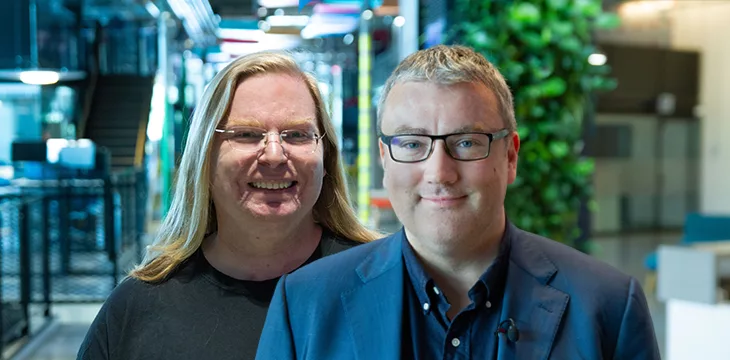|
Getting your Trinity Audio player ready...
|
Carby is the first marketplace for future carbon credits, solving liquidity, scalability and transparency issues of the market. Its CEO and Co-founder Mark Moores believes more carbon projects are needed to fight climate change. Speaking as a father, Mark tells Charles Miller on this episode of CoinGeek Conversations, “When you have a child, you re-evaluate things and you think about the future and one thing you’ve got to think about is what type of planet are we bequeathing our children?”
With Carby, a platform that connects carbon projects with carbon credit buyers, Mark is addressing climate challenges by scaling the voluntary carbon market. The platform will help provide project developers with funding to overcome cashflow challenges while giving them access to liquidity solutions in the market. In effect, the platform will encourage project developers to increase the supply of carbon credits as buyers signal a future demand.
Project developers will be able to sell NFTs that represent a specific carbon credit in a specific future year. Attached to the NFT is an advance purchase agreement that gives project developers a legal obligation to deliver the carbon credit to the buyer once it’s been produced.
CyberXChain looks to incentivize ethical hackers using blockchain technology
Cybercrime is a massive problem, says Jean Lehmann, Founder and CEO of CyberXChain, a marketplace that brings together ethical hackers and businesses.
As defined by Jean, “Ethical hackers are essentially professionals, security experts, consultants looking to flag, fix and identify vulnerabilities in computer systems so companies can be better informed of the vulnerabilities and the steps on how to fix them.”
“Every day brings in new headlines of cyber-attacks, we are observing a never-ending cycle of cyber-attacks and the cyber arms race between the attackers and the defenders,” Jean explains.
Jean’s solution is to create a trust and economic layer between ethical hackers and businesses. With CyberXChain, ethical hacking is democratized, made more accessible and cost effective for both businesses and ethical hackers, he says.
The platform will have its own token that ethical hackers can directly be rewarded with upon job completion, through their digital wallet. According to Jean, using blockchain technology will improve operational efficiency and create economic incentives. “I look at blockchain as a way to create an economic policy, governance and technology ledger, which is going to bring various types of efficiency and benefits around smart contracts for rule-based automation of security events,” he says.
After many years of working in cybersecurity, Jean realized that the service model to counter cyber-attacks is not scalable. For his part, CyberXChain will address the cybersecurity challenge while creating economic incentives, ultimately improving security posture.
Watch the full episode of CoinGeek Conversations’ third installment of its Summer Special series featuring Block Dojo entrepreneurs here:
You can also watch the podcast video on YouTube.
Please subscribe to CoinGeek Conversations – this is part of the podcast’s new series. If you’re new to it, there are plenty of previous episodes to catch up with.
Here’s how to find them:
– Search for “CoinGeek Conversations” wherever you get your podcasts
– Subscribe on iTunes
– Listen on Spotify
– Visit the CoinGeek Conversations website
– Watch on the CoinGeek Conversations YouTube playlist

 07-06-2025
07-06-2025 





